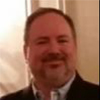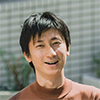DAY 1 – April 5, 2021
Cell Line Development – New Technologies for Accelerated Timelines
08:00 JST
Session Description Coming Soon!
Speakers:
Sung Ho Hahm
CEO & President
ROPHIBIO, Korea
View More Details +
Generation of Improved Host Cell Lines for Biomanufacturing using Vector & Cell Line Engineering
Technologies
08:30 JST
The presentation covers recent advances of our Cell Line Development toolbox of vector elements and engineered CHO cell lines, which resulted in increased clone productivity & genetic stability as well as improved product quality for complex therapeutic proteins. Additionally, by combining vector technologies with a robust CHO cell line, we developed a highly accelerated cell line development scenario for antibodies with significantly reduced efforts for the generation of high-producing CHO clones.
Speaker:

David Ausländer, PhD
Principal Scientist II
Novartis Pharma AG, Switzerland
View More Details +
Strategies in Expression of the SAFA Platform Based Fusion Proteins
09:00 JST
Expression of Fab-based antibody proteins using HD-BIOP3 GS Null CHO K1 cell line
Speaker:

Dr Sang-hoon Cha
CEO
Aprilbio Co., Ltd.
View More Details +
Apollo™X: Leveraging next generation technologies to achieve stable clonal cell lines expressing high product titers and intensified gene to GMP timelines
09:30 JST
- Apollo™X represents an evolution from the original Apollo™ cell line development platform, accomplished with the application of next generation screening technology, enhanced media selection and technical expertise.
- Cell line development timeline reductions were achieved through the introduction of a single cloning step, whilst maintaining a high assurance of monoclonality through the use of single cell imaging and high resolution plate imaging technology.
- Rapid genetic characterization of clonal cell lines was made possible through the use of Targeted Locus Amplification (TLA) technology.
- Apollo™X is an expression system that can be used to generate stable, clonal cell lines capable of expressing both mAbs and other recombinant proteins with high titers, and which can be used in fed-batch and continuous processes.
Speaker:

Fay Saunders
Head of the Mammalian Cell Culture (MCC) PD Team
FUJIFILM Diosynth Biotechnologies
View More Details +
DAY 2 – April 6, 2021
Smart End to End Data Management for Statistical Bioprocess Control
08:00 JST
End to end knowledge management is required during the life cycle of biopharmaceutical manufacturing processes from process development to manufacturing. In Bioprocessing 4.0, the wide range of data is an important source for scientific understanding, and speeding up from data acquisition to analysis then control is essential, the smart data management is expected to push boundaries and unlocking unprecedented possibilities to transform drug manufacturing. In this presentation, we explain the current challenges of bioprocessing data utilization and introduce the solution for the data aggregation, management, visualizations, and statistical analysis, and clear the benefits of smart data management.
Speaker:
Takao Ito
Process Solutions, Manufacturing Sciences and Technology
MERCK LIFE SCIENCES, Japan
View More Details +
High-throughput Robotics and State-of-the-Art Technologies to Enable Fast FIH with Engineered IgG Molecules
08:30 JST
Chugai is developing not only standard IgG format molecule but also engineered antibody which enables expansion of druggable target. In such case, the physicochemical property of antibody is unique and diversified, thus downstream process is difficult to be fit into “platform process”. In my presentation, “Tool box approach” for process development is introduced and also case studies with robotics and newly developed technologies which is contributing fast development and also fast first in human in clinical study are shown.
Speaker:

Shohei Kobayashi
Group Head, API Process Development Department (Biotechnology)
Chugai Pharmaceutical Co., Ltd.
View More Details +
Maximizing Virus Filtration Process Performance for High Protein Concentrations Using Planova™ BioEX
09:00 JST
Trend of bioprocess, how to achieve target mass throughput with high concentration mAbs
Speaker:

Eric Zhu (朱 炜超)
President
Asahi Kasei Bioprocess (Shanghai) Co., Ltd.
旭化成生物工程(上海)有限公司
View More Details +
MaruXTM: demonstrating continuous biomanufacturing at 500 L scale operations
09:30 JST
Clinical and commercial continuous manufacturing of biologicial products has taken another step forward with the successful production of monoclonal antibody from our fully disposable 500 L manufacturing scale non-GMP MaruXTM facility. Using the ApolloXTM high biomass perfusion cell-line with commercially available upstream systems and SymphonXTM purification skids for point-of-use buffer dilution and connected, intensified batch processing we were able to process ~1 kg mAb/day into downstream.
Speaker:

Charles Heise
Senior Staff Scientist in the Bioprocessing Strategy & Development group
FUJIFILM Diosynth Biotechnologies
View More Details +
Novel Purification Technologies and Approaches to Maximize Speed, Efficiency and Process Optimization
10:00 JST
Over the past several years, significant progress has been made to increase upstream process titers, thus creating a strain on existing downstream purification technologies. Although implementation of continuous unit operations has provided some relief, downstream processing still presents a major bottleneck in the production of therapeutic antibodies. In this presentation, we will demonstrate an integrated downstream purification process to enable significant removal of critical impurities. Through use of an affinity chromatography that possesses high dynamic binding capacities of greater than 60 g/L, we have obtained antibodies with increased purity while reducing overall process time. Furthermore, by using select additives during process chromatography, we demonstrate this process can be fine-tuned to enhance target antibody selectivity by removing host cell protein impurities and aggregates. When used in conjunction these technologies represent a highly efficient process to obtain monoclonal antibodies for use as therapeutics.
Speaker:

Jungmin Oh
Manager - New Product Development
Avantor
View More Details +
Ready for Biopharma 4.0? Accelerating your Process Development with Biopharma Lifecycle Management
10:30 JST
Biopharma 4.0 is a bold vision, with smart factories and process automation, driven by real time data to constantly ensure quality and efficiency. The journey towards this vision starts with improving process understanding and characterization, supported by advances in technology such as high throughput process development as well as advances in data sciences that enable in-silico process development. In this session IDBS will share how effective biopharma lifecycle management can drive speed and innovation in process development as labs struggle with the increases in data from equipment, instruments and sensors.
Speaker:

Henry Charlton
Commercial Director, Biologics Development
IDBS
View More Details +
DAY 3 – April 7, 2021
Superior Allogeneic Stem Cell Manufacturing and Preservation Solutions
08:00 JST
Allogeneic stem cell manufacturing continues to be a challenge for the C> industry. An ASTAR funded programme called ASTEM was created to address the bioprocess issues from identification of high quality donors, harvesting the cells directly onto microcarriers and in serum free conditions. Expanding target Mesenchymal Stromal Cells (MSC) in either xeno-free or serum free conditions, scaling the MSC in microcarriers bioreactor cultures, developing supplements that maintain high potency such as colony formation assays during expansion and ensuring improved functions in animal models of osteo-arthritis. Combined with these processes, ASTEM is also partnering with X-Therma to offer cell preservation and recovery in DMSO-free solutions that ensure high viability before freezing and post-thaw in order to delivery the highest quality MSC for clinical applications.
Speaker:

Steve Oh
Director of the Stem Cell Bioprocessing group
A*STAR’S BIOPROCESSING TECHNOLOGY INSTITUTE, Singapore
View More Details +
Allogeneic Cell Therapy Scaleup in a Stirred Tank Reactor
08:30 JST
Session Description is Coming Soon!
Speaker:
Isaac Erickson
Director of Bioprocess Engineering
DISCGENICS, USA
View More Details +
COVID-19 Risk Mitigation Strategies for Cell and Gene Therapy Products
09:00 JST
This presentation will link new regulatory guidelines for minimizing the risk of potential transmission of SARS-CoV-2 when manufacturing cellular and gene therapy products, as well as other biological products, with the usefulness of a SARS-CoV-2 RT-PCR detection assay designed and validated for cellular and cell-based products.
Speaker:

Michael Hantman
Associate Director of Methods Development and Validation
Charles River
View More Details +
Enabling Industrialization of Human induced Pluripotent Stem Cells-Based Therapies
09:30 JST
The session key learning points include identifying the main manufacturing challenges for generation, expansion, and directed differentiation of human iPSC based cell therapies, the development of a cGMP compliant iPSC manufacturing process that supports efficient and unbiased directed differentiation into all three main germ layers, establishing an end-to-end platform allowing large scale expansion of high quality human iPSCs to support the required cell demand for various clinical indications, and addressing the key quality characteristics of human iPSCs with evaluation of the long-term cellular and genomic stability of Lonza GMP compliant iPSC lines. The session will highlight how Lonza can help the path towards commercialization of iPSC-based therapies.
Speaker:

Inbar Friedrich Ben-Nun
Sr. Manager, Cell and Gene Therapy R&D
Lonza
View More Details +
The Role of Virus Filtration in Achieving Pathogen Safety of Cell and gene Therapy Products
10:00 JST
Viral safety and risks for cell and gene therapy, how to improve pathogen safety of cell and gene therapy
Speaker:

Yoshiyuki Sawamura
Scientist
Asahi Kasei Medical Co., Ltd.
View More Details +
Scalable Manufacturing of MSCs and iPSCs in Vertical-Wheel Bioreactors for Allogeneic Cell Therapies
10:30 JST
The liquid mixing characteristics of a bioreactor have a significant impact on the quantity and quality of allogeneic cell therapy products manufactured during cell culture processes. The Vertical-Wheel bioreactor creates a unique environment of low shear stress and homogeneous distribution of turbulent energy dissipation rates. These hydrodynamic conditions enable the scalable expansion of MSCs grown on microcarriers and iPSCs grown as cell aggregates, of which examples will be presented.
Speaker:

Maximilian Lee
IP & Marketing Manager
PBS Biotech
View More Details +
DAY 4 – April 8, 2021
Manufacturing Platform Development for Viral Vectors
08:00 JST
Platform production processes simplify process development and make it easier to scale-up effectively. Knowing that a sequence of unit operations will work for virus production reduces the amount of exploratory work required to scope out a feasible manufacturing process. We describe key considerations when building a platform for production, how cost modelling informs platform design and propose near-term and future-state platform solutions
Speaker:

David Loong
Associate Director (Gene Therapy)
MERCK LIFE SCIENCE, Singapore
View More Details +
Generation of High Quality iPS Cells Using the SeV Vector System
08:30 JST
Reprogramming somatic cells into iPSCs using Sendai virus (SeV) vector is one of the most useful methods regarding its ease of use and high infection efficiency, while there is no risk of integration into the host genome. We will introduce a novel method to generate high quality iPS cells using SeV vector with a new reprogramming factor.
Speaker:

Akira Kunitomi, M.D., Ph.D
Center for iPS Cell Research and Application (CiRA)
KYOTO UNIVERSITY, Japan
View More Details +
The Development of a Manufacturing Process for Multiple AAV Gene Therapy Vectors
09:00 JST
Cell and Gene Therapy offers exciting new avenues for improving the quality of patients’ lives. Viral based Gene Therapy (VGT) is a growing field with many projects initiating preclinical development and now advancing through both early and late phase clinical trials. As these new therapies move from benchtop to bedside, alongside the challenges to shorten development timelines and reduce the cost of goods (COGs), there is a need to establish efficient, robust processes and analytical methods for the cGMP manufacturing of Adeno-associated viral vectors (AAV). FUJIFILM Diosynth Biotechnologies’ (FDB) AAV manufacturing platform addresses these needs by providing critical components, including a fully characterized HEK293 cGMP cell line which has been suspension adapted into serum free, chemically defined medium, ‘off the shelf’ multiple serotype Rep/Cap plasmids, AV Helper plasmid and a client specific gene of interest (GOI) plasmid. These key components have been fully integrated with FDB’s process and analytical development and cGMP manufacturing capabilities. FDB’s progress on establishing this AAV platform will be discussed in this presentation.
Speaker:

Cari Petrow Sadowski
Principal Scientist/Group Leader of the Science and Innovation Group
FUJIFILM Diosynth Biotechnologies
View More Details +
Scale Up and Risk Mitigation of Therapeutic Viral Vectors for Gene Therapy
09:30 JST
With multiple products on the market, gene therapy has now gone beyond proof of concept and entered mainstream healthcare. This success urgently requires work on manufacturing processes to ensure that gene therapies are widely available to all that need them. Furthermore, regulatory authorities, tasked with assuring quality, efficacy and safety of the final product, are placing increasing scrutiny on the manufacturing process. Regulatory guidance documents suggest that the risk of adventitious agent contamination should be assessed and mitigated through a risk-based approach.
In this webinar, we will outline key considerations in choosing the right technology for scale up in adherent and suspension cell cultures and some of the pitfalls that must be overcome to ensure success at large scale. Furthermore, we will detail a process control strategy to mitigate the risk of adventitious agent contamination.
Participants will learn:
- What factors to consider when choosing your cell culture
- The advantages and disadvantages of each type of culture
- A risk based approach for viral vector manufacturing
Speaker:

Sid Gupta
Global Product Manager
Pall Corporation
View More Details +


















